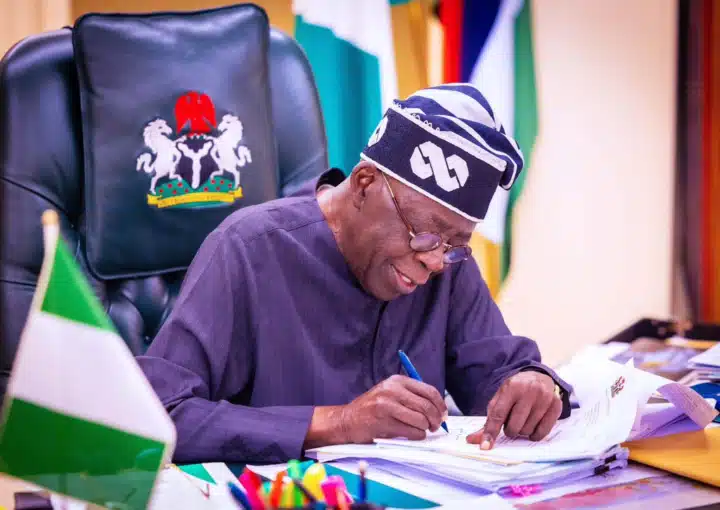President Bola Tinubu is set to receive the new minimum wage bill for assent following its accelerated passage through both chambers of the National Assembly on Tuesday.
The Executive Bill, which mandates a ₦70,000 minimum wage and stipulates a three-year review cycle, was rapidly processed during separate plenary sessions of the Senate and the House of Representatives.
Both chambers conducted the required three readings and approved the bill through voice votes.
President Tinubu had initially presented the bill via a formal letter, appealing to lawmakers to expedite its passage.
The bill aims to give legal backing to the ₦70,000 minimum wage agreed upon between organized labour, the organized private sector, and the government.
It also reduces the interval for the periodic review of the national minimum wage from five years to three years, in line with President Tinubu’s promise during a meeting with labour leaders.
During the plenary sessions, Majority Leaders of both chambers, Senator Opeyemi Bamidele and Representative Julius Ihonvbere, moved motions to suspend relevant rules to allow for the immediate consideration of the bill for its second and third readings.
In the House, Minority Whip Hon. Ali Isa JC (PDP, Gombe) seconded the motion presented by Ihonvbere.
Both the Senate and the House of Representatives unanimously approved the motions, as confirmed by Senate President, Godswill Akpabio and House of Representatives Speaker, Abbas Tajudeen through voice votes.
Leading the debate on the general principles of the bill, Senator Bamidele highlighted its significance in amending the National Minimum Wage Act of 2019.
He emphasized the necessity of increasing the national minimum wage and reducing the review period to three years to better align with current economic conditions.
Majority Whip of the Senate, Senator Mohammed Tahir Monguno, seconded the motion and commended the provision to shorten the review interval.
He stressed that this amendment would ensure more frequent adjustments to the minimum wage in response to economic changes.
No lawmakers opposed the bill during its consideration in both chambers. The Senate and the House of Representatives subsequently approved the bill for the third reading and passed it unanimously when put to voice votes by their respective leaders.
The bill now awaits President Tinubu’s assent, which will formalize the new ₦70,000 minimum wage and the three-year review cycle into law.












































